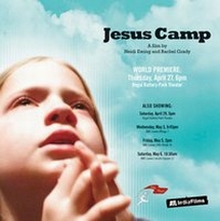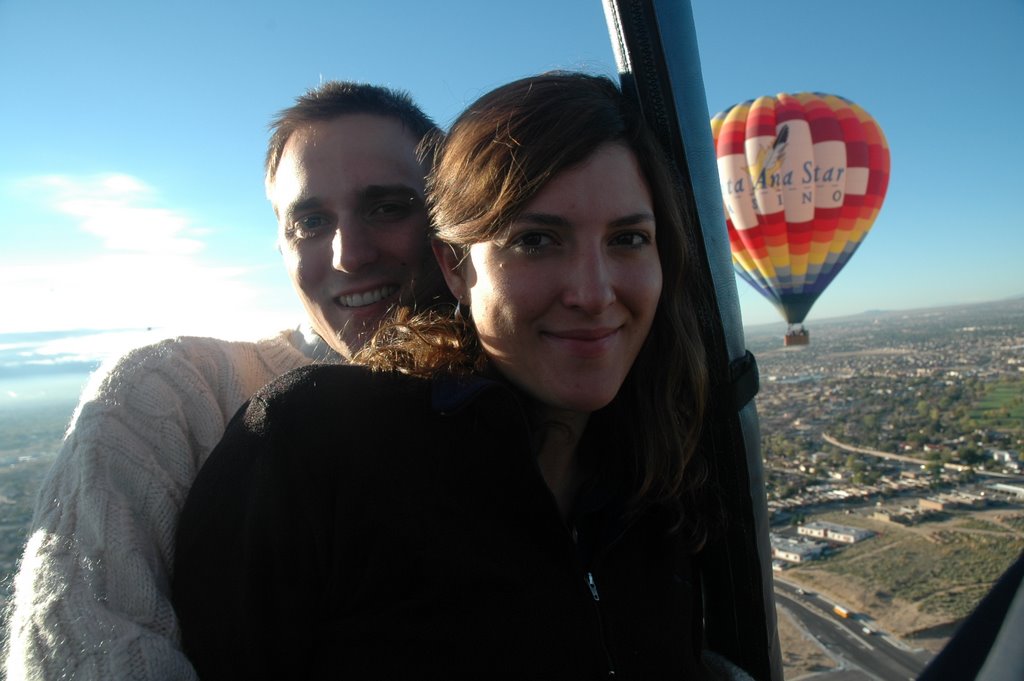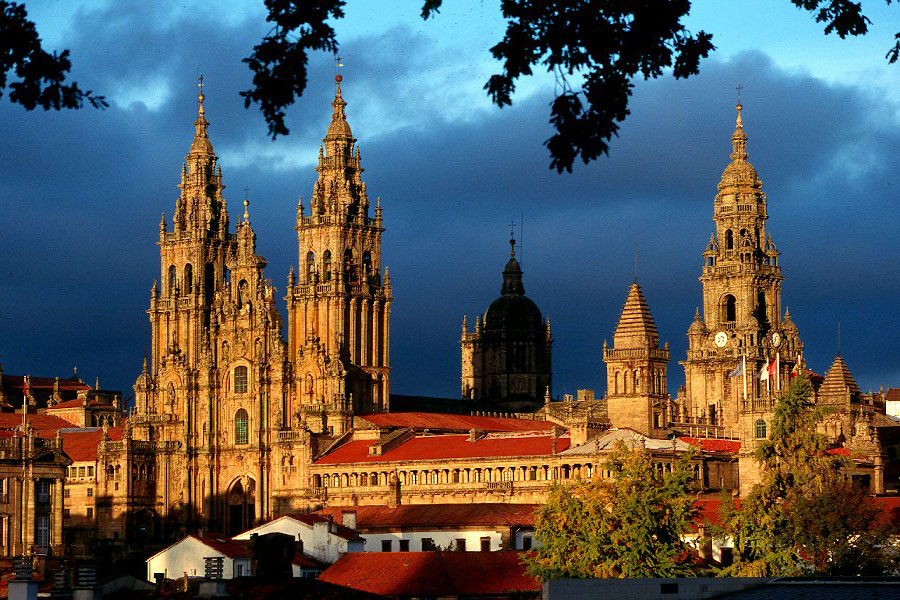
I ventured out last weekend
to see this. "Jesus Camp" is a film about a modern American church in the heartland, and the children whom this church trains in the practices and values of Charismatic Evangelicalism. From one who has always felt a little uneasy about, say, Christopher Guest stumbling in upon A Christian Community and having his way with it, I have to say that this heavily edited documentary was fair and accurate enough. My present company were Cradle Episcopalians, and they viewed the film with characteristic, cool detachment; I, having grown up in the midst of experiences much like those depicted on screen, was squirming in my seat. They hit a little close to home.
No, the director Heidi Ewing has not nailed modern American sociology, and I will HOOT at anyone who suggests that she has. Modern evangelicalism is much more nuanced than what she would like to suppose for purposes of her sojourn among the suburban middle class in Kansas. In fact, I do not think that she has depicted modern American Evangelicalism accurately at all. Her test case is a single, large, generally poorly educated Pentecostal-Charismatic congregation of relatively good people. The film depicts children speaking in tongues, prophecying, and bravely doing street evangelism (bless their little hearts!). I would suggest, on the other hand, that your average self-identifying American Evangelical traces (her) roots much more to Baptist tent revivals, Charles Finney, and Billy Graham than to such Pentecostal wackiness, and thus probably thinks that speaking in tongues is just too weird, prophecying is
passe, and street evangelism is better confined to to the dignity of hosting a soup kitchen for homeless people (I tend to agree with the latter). In point: the evangelicalism that filmakers would like to pin American problems uponst is not tantamount with the congregation that Ewing has exploited. Most evangelicals are not charismatics, sadly.
However, Heidi Ewing's test case is slantedly ideal for her (hip) political purposes because her stars have embraced that strange, pseudo Christian Science-ridden ecclesiology that honestly believes that America is the Kingdom of God, that our wars are all just, and that our president is divinely inspired. Weird. I honestly know of no thinking, trained, orthodox evangelical who actually believes this; and I run with a lot of evangelicals. In as much as Ewing purports to show her Starbucks-drinking, grad school attending, posturing WASP audience (me and co.) what American Evangelicalism looks like, by way of showcasing what the evangelical fundys in Kansas believe, she utterly fails. Even we evangelicals can recognize generalizations, biased presumptions, ad nauseum on a cinema screen.
In sum, Ewing is slap-happy with her labels. Outsider.
...But one additional comment. I was really shocked that the parents of the children filmed in this movie would permit their devout little ones (all around eight years old) to be so exposed. Many of the mass-marketed scenes of children's religious ecstacy in the film are jarringly disturbing to a popcorn-munching movie audience. The children scream, weep uncontrollably, share intimately what they have appropriated of their parent's culture in front of the unchaperoned camera, and in one scene, a little boy convulses violently on the floor.
Hear me: I am one of those kids. Lord willing, I will raise some of those kids. Most of our most serious saints started out fasting and lamenting loudly for the sins of the world and doing other ridiculous things at the age of five or so. But with regard to this movie, the
context seemed so wrong and exploitive. I can imagine what the parents were thinking:
our kids will be filmed sharing and living their faith! What a blessing that they get to be a witness in this way! Go for it! This is in many ways the evangelical's
raison d'etre. Maybe that's where Ewing does have a legitimate critique for we evangelicals, and offers to us a constructive pause for reflection. It is within the security of the arms of the Church the sometimes strange, jarring experiences of the Holy Spirit can occur in an atmosphere protective of the true intimacy, dignity, and healing of ecstatic experience. Within the arms of the Church, the community can listen to one another and guide one another, such that even the strangest manifestations of the living God can actually accomplish His will: the gathering of those not yet gathered to the
beauty of holiness.
But on a movie screen? Please. I can still see that little boy convulsing, and in spite of myself, I feel sorry for him. The well-intentioned parents should have been more careful.
One last thing. I left that film feeling so grateful for the beauty and dignity of orderly, beautiful liturgical worship, in as much as it lends itself to a true witness to Christ. St. Paul was always talking about this... worship in such an orderly way that others may be drawn in; not confounded, not perplexed, but allured and compelled.
I remember attending a noon Mass at a Roman Catholic parish a few months ago. The day's congregation consisted of homeschooling, charismatic families. At the end of the service, the little ones clamored around the altar and knelt on their own for a few minutes of private prayer. It was precious- tightly closed little eyes, earnestly clasped little hands, unformed mouths murmuring a prayer known by heart. You could film that and show it on a movie screen. It would probably speak to someone in the audience in a compelling way-
this is somehow right, righteous, this is somehow something of the tenderness that we wish for in encountering our Creator. But as I recall, when the frame of the little boy convulsing on the floor was done, I listened to nothing but nervous titters throughout the theatre. And that was very sad.






























